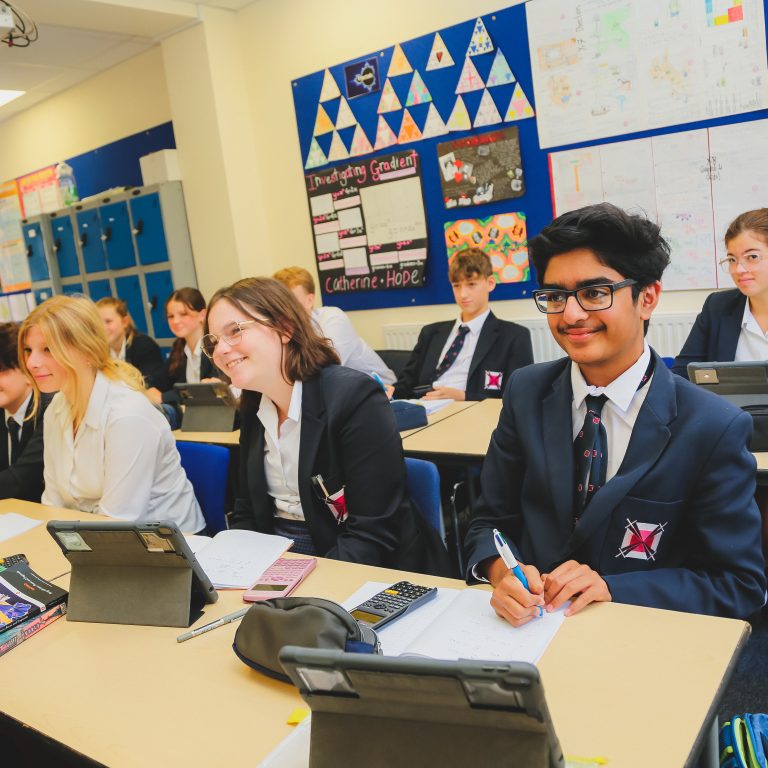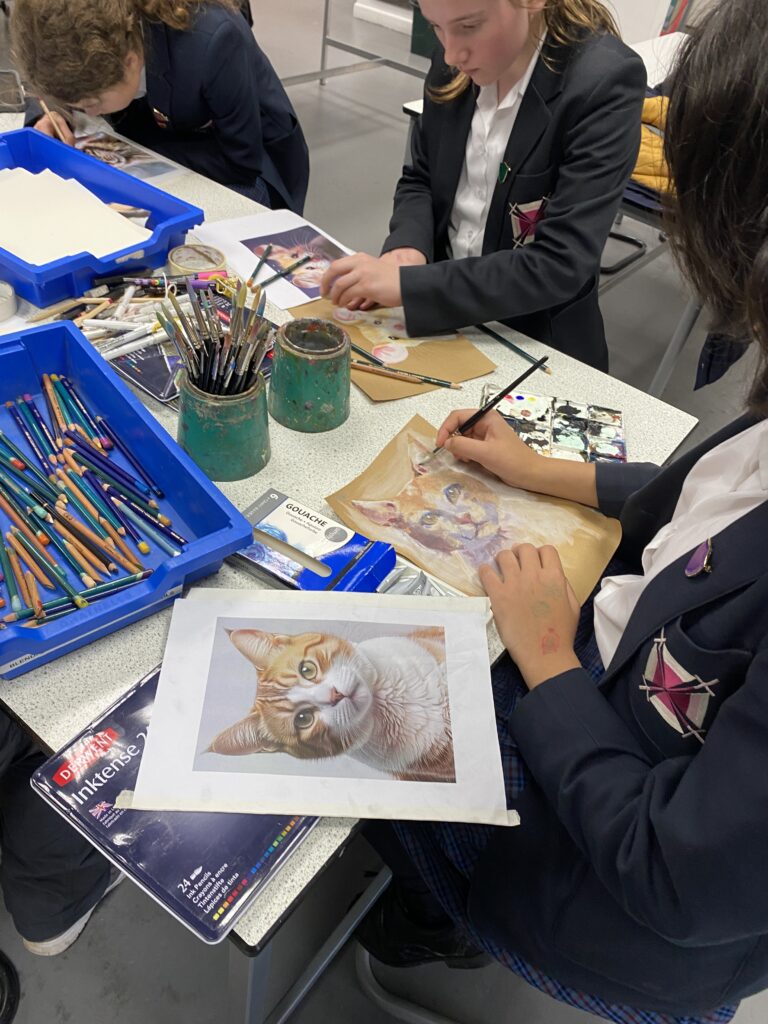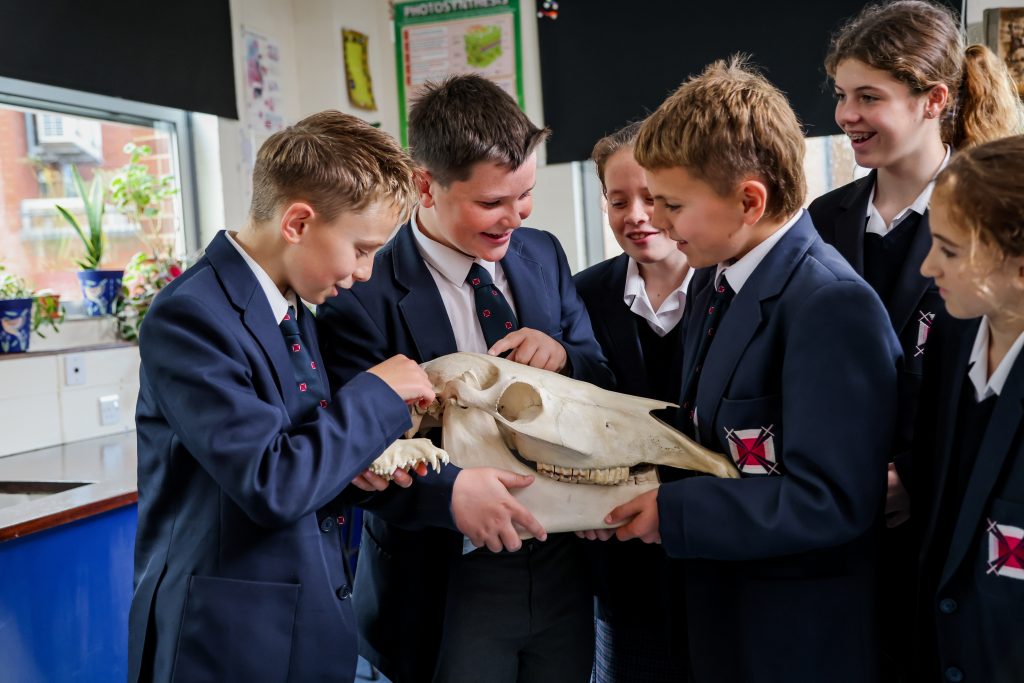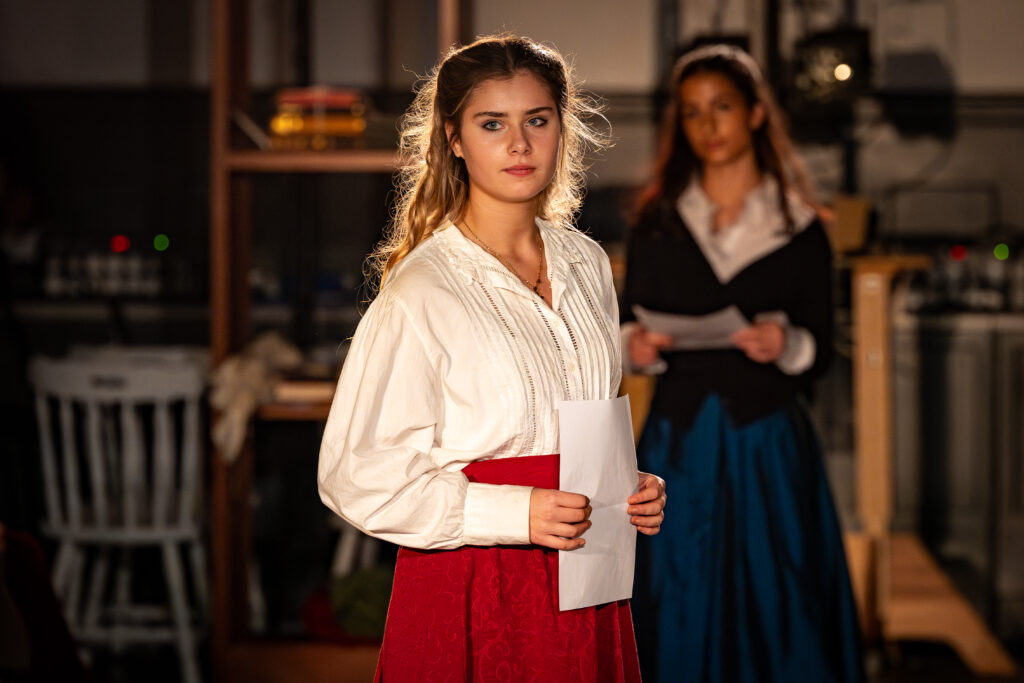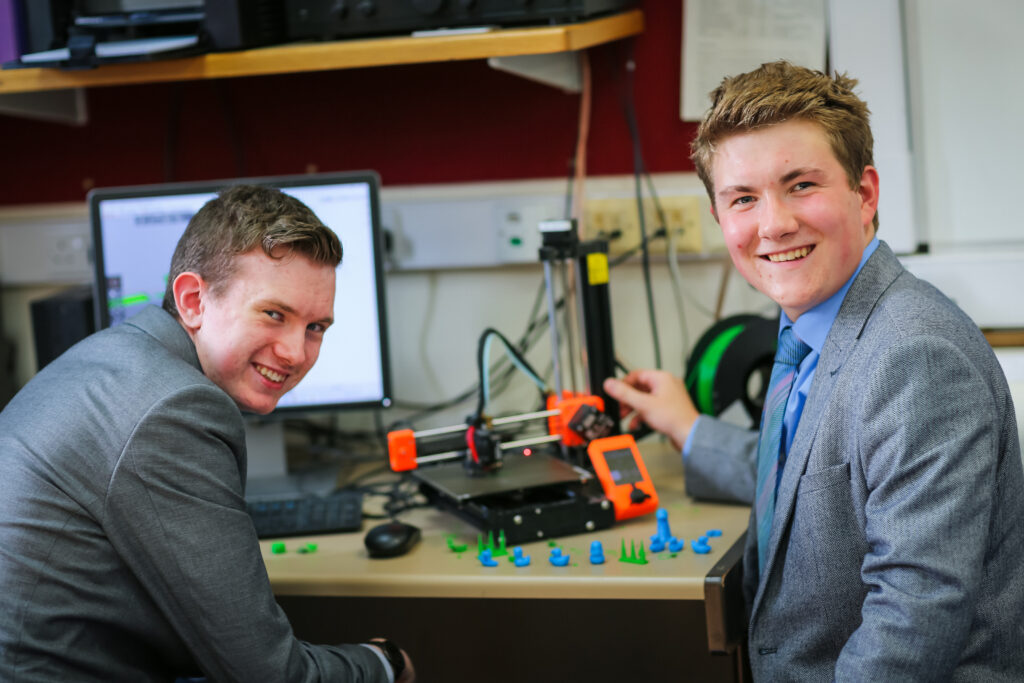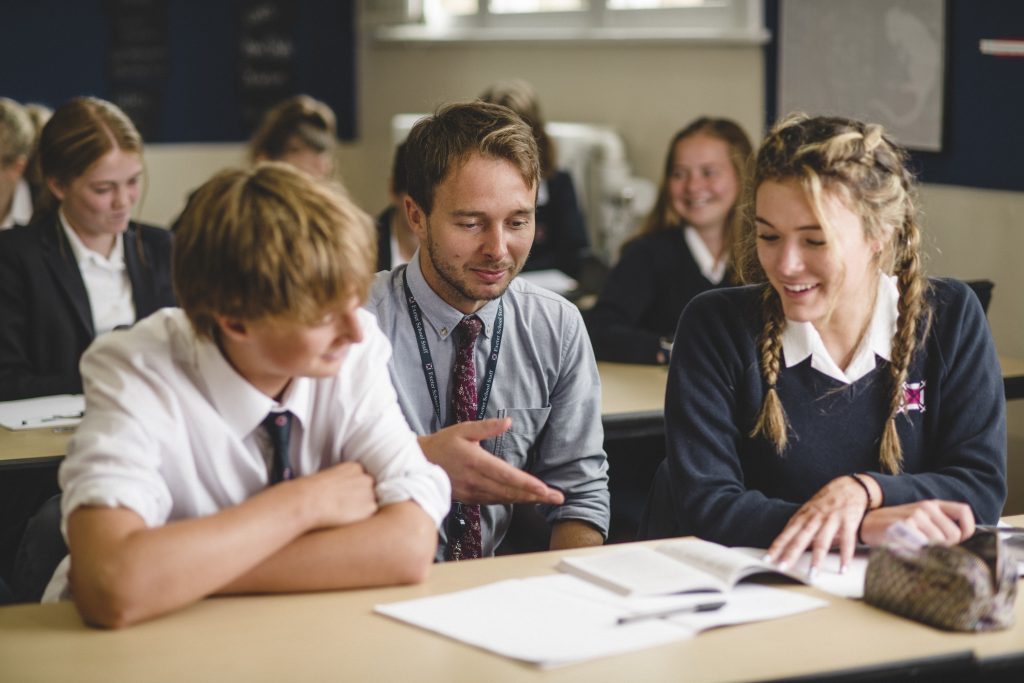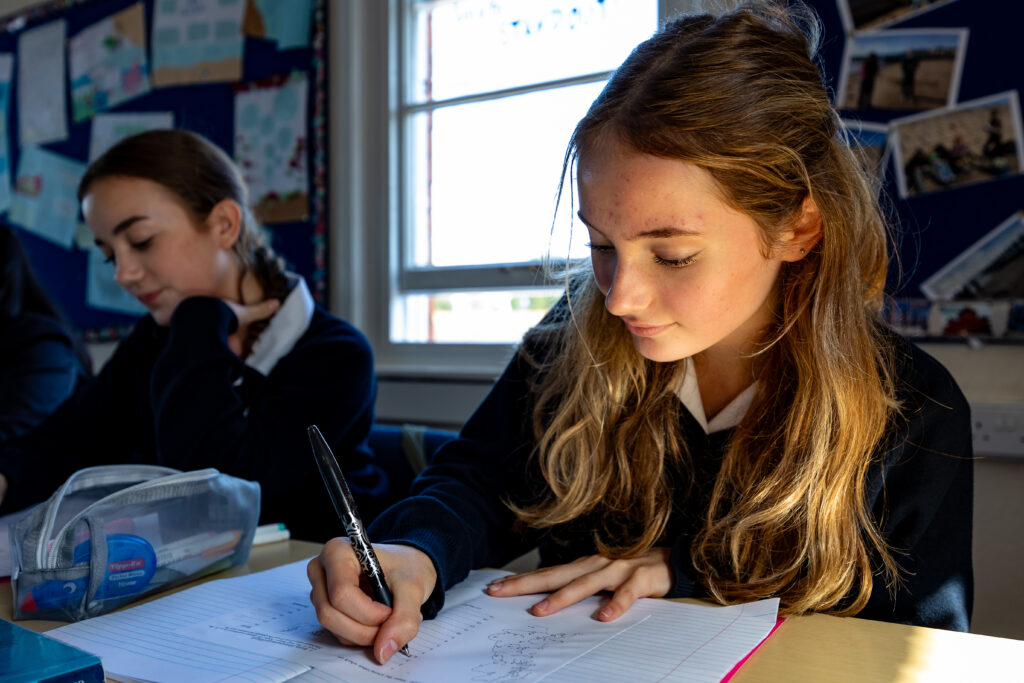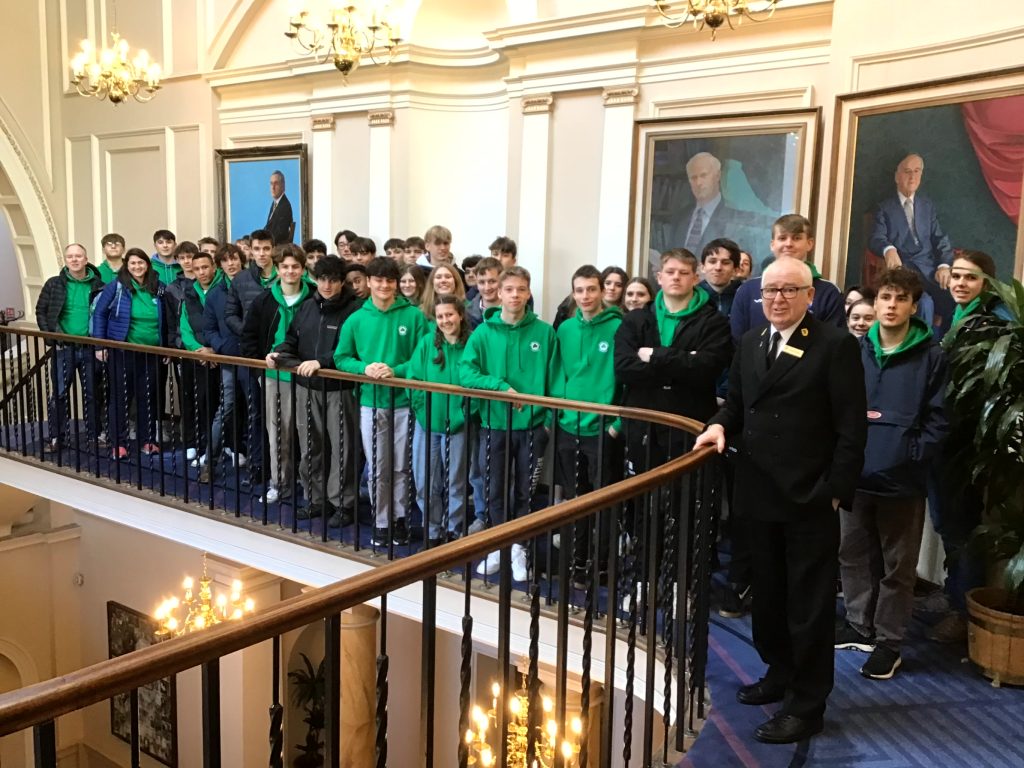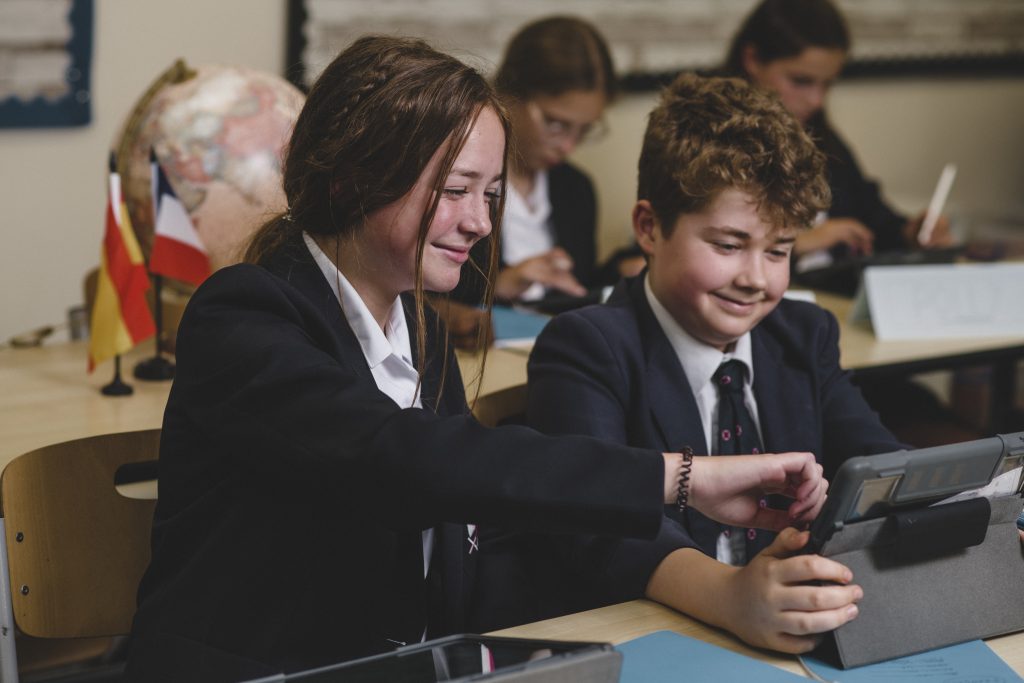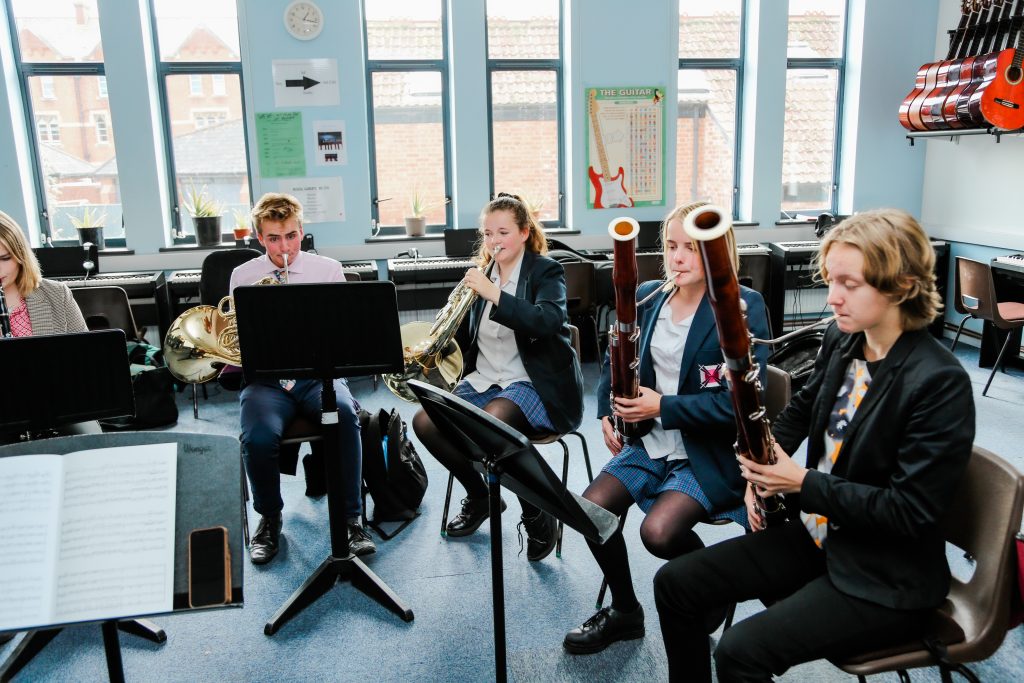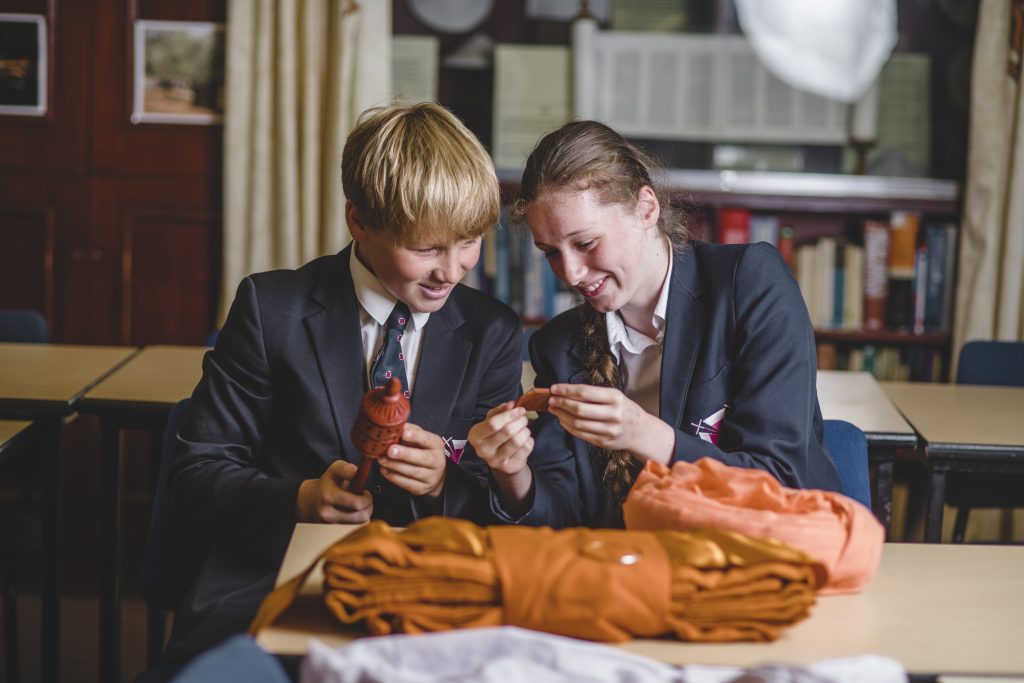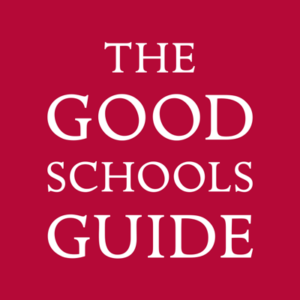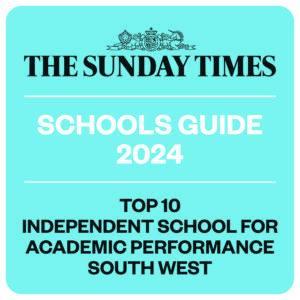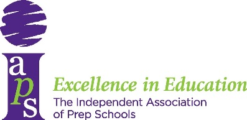In a world where some countries are more inclined to close their borders, and circulate confusion and fake news about their neighbours, the need for intercultural understanding is urgent and clear. Understanding the language that other people use is key to both getting behind the “official” story and understanding the motivation of those on the international stage.
In a post-Brexit world, international trade and relations can only be enhanced by the ability to communicate with our European neighbours in their own language.
Extensive use is made of authentic materials in teaching, with most resources created in-house. Our aim is to transport pupils to the target countries using audio visual content including live streaming of television and webcams.
Third Form to Lower Fifth (Years 7 – 9)
In the Third Form (Year 7), pupils will study two modern foreign languages from our range of French, German and Spanish. In addition, all pupils in the year will take classical studies, an exciting mix of topics that will prepare pupils well for either Latin or classical civilisation in the future. Each pupil selects one modern language, which we guarantee they will study in the Third Form. We will then allocate each pupil a second modern language to study: and pupils often find that a brand-new language, which they knew nothing about, turns out to be one of their favourite subjects. Pupils will study at least one of these two modern languages as part of the GCSE core curriculum until the end of the Upper Fifth (Year 11).
Grammar is taught unapologetically, along with translation into and out of the target language. Pupils invariably find that learning a second language leads to a better understanding and appreciation of their first language.
Oral proficiency is paramount. Emphasis is placed firmly on the spoken language, and how ably and confidently pupils will be to converse at the end of each course. This is assisted by embedding spaced repetition and metacognition/“deep processing” into language learning, making good use of web-based tools such as Memrise and Quizlet.
A broad programme of cultural and geographical awareness, phonics, and co-curricular work further brings the subject to life.
Why should you study…?
French is still the main modern foreign language taught in UK schools, and the language most studied both at IGCSE and A Level. It is spoken by Britain’s closest neighbours in Europe, and on every populated continent on the globe: around 77 million people have French as their native language, and up to 275 million use it in the 27 countries where it is an official language. Because of such widespread usage, one writer in The Economist has suggested that French is the most useful language in international business, and because of population growth in various French-speaking countries in Africa, one investment bank predicts that French will be the most widely spoken language in the world by 2050. Traditionally the language of all European aristocracy and of international diplomacy, more European cinema is produced in French than in any other language, and France has produced more Nobel Literature Prize winners than any other country, as well as being the world’s top tourist destination. French is also one of the official working languages of NATO, the United Nations, European Union, International Olympic Committee, and the International Red Cross.
German is the language most sought after by UK employers, according to a CBI survey (in which Mandarin came fourth). It has the most native speakers of any language in Europe, being the main language in Germany, Switzerland, and Austria, and is the second most commonly used language in scientific research. German native speakers have won no fewer than 158 Nobel Prizes in various fields, with many more having trained in German-speaking countries. It is the language of Europe’s largest economy, and German-speaking tourists spend more money in their holiday destinations than any other Europeans. When some other schools and universities are closing their German departments, uptake in German at Exeter School is increasing, and is taught from Year 5. Pupils regularly win national Goethe Institut competitions, take part in a biennial exchange with Hildesheim which dates back to 1965, and continue to study German at university. Former pupils from Exeter School who studied German at university have worked in such diverse fields as the World Games Association, advertising with Saatchi & Saatchi, and aeronautics with the RAF and FAI.
Spanish is the official and most widely spoken language of 21 countries, 19 of which are found in Latin America, and is the native language of around 400 million people, making it the world’s second most spoken language in terms of native speakers. It is a working language of the United Nations, as well as being the second most used language in the USA, where 1 person in 8 is a native Spanish speaker, making the USA effectively the world’s fifth-largest Spanish-speaking country, and the wealthiest. Spain is the country most visited in the world by the British, with one passenger flight in every four departing the UK landing in Spain, and UK schools have seen an exponential growth in the uptake of Spanish in the last 10 years, where it has now become the second most studied modern foreign language at GCSE, possibly because of its associations with sunshine and leisure time, and its straightforward grammar and phonics in the initial stages of learning.
GCSE
Pupils will take the IGCSE in at least one MFL chosen from French, German and Spanish. Topics to be studied are home and abroad, education and employment, personal life and relationships, the world around us, and social activities, fitness and health.
Throughout this course, pupils will develop their language and communication skills as well as broadening their cultural knowledge of the communities where those languages are spoken.
We offer an exchange or study trip to French, German and Spanish speaking countries during the IGCSE course, which will provide invaluable speaking practice and first-hand experience of the language and culture. The aim of the study trip is to enrich our exam courses although they are not an essential part of them.
Exam board: Ecexcel
Subject: IGCSE French/Spanish/German
Beyond the curriculum
Mastering a language requires immersion. With that in mind, the department offers a broad diet of cultural activities and trips. The biennial German exchange with Hildesheim has run since 1965. Home stay visits with language lessons are undertaken in Valencia, Cuenca, Granada, Paris, Montpellier, Nice and Bordeaux.
Our language enthusiasts contribute regularly to Comets, Catalyst and Crossing Clubs, including sessions on linguistics, Arabic and Polish.
Pupils take part in competitions run by the Goethe Institut and the “This is language” global website. In concert with the computer science department, we enter teams for the International Linguistics Olympiad.
We also make full use of the Onatti theatre company which produces plays for schools across Europe. They perform in all three languages for Lower Fifth (Year 9), as well as performing in French for the junior school.

